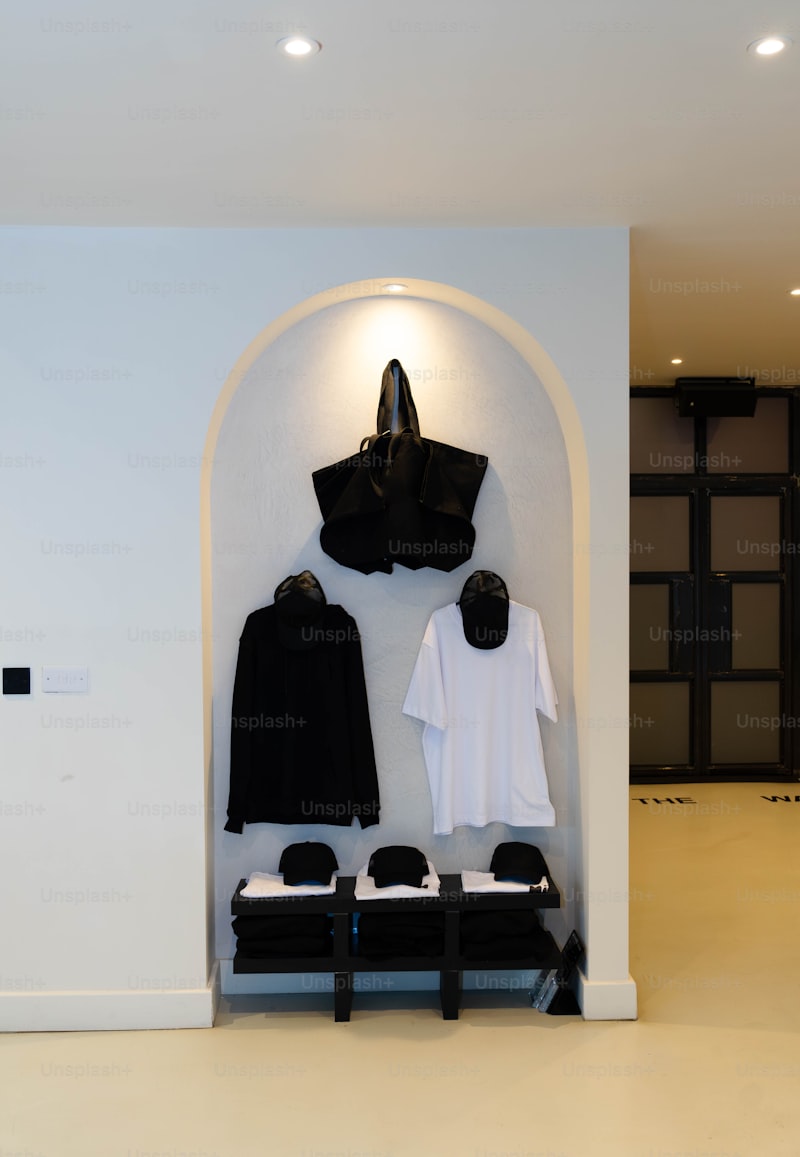Exploring the Unique Selling Points of Boutique Shops
Understanding Boutique Shops
Boutique shops, often known for their exclusive selections and personalized service, offer a unique shopping experience that stands out in today's retail environment. This article delves into the unique selling points (USPs) of boutique shops, showcasing the reasons why they attract customers seeking something beyond the ordinary.
1. Curated Selection of Products
One of the most significant unique selling points of boutique shops is their carefully curated selection of products. Unlike large retail chains that may offer a mass-produced selection, boutique shops focus on providing a distinctive range of items tailored to local tastes and trends. This can include unique clothing, handmade accessories, eclectic home decor, or artisanal food products.
| Benefits of Curated Selection | Examples |
| Personalized Shopping Experience | Limited edition clothing from local designers |
| Support for Local Artisans | Jewelry made by local craftspeople |
| Trendsetting Styles | Exclusive home goods not found in larger stores |
2. Exceptional Customer Service
Boutique shops pride themselves on delivering exceptional customer service that often surpasses that of larger retailers. Customers frequently report feeling valued and appreciated when shopping in boutiques, as staff members take the time to understand their needs and preferences. This personalized approach not only enhances the shopping experience but also fosters customer loyalty.
Why Customer Service Matters
Strong customer service leads to repeat business, and visitors to boutique shops are likely to share their positive experiences through word of mouth. The emotional connection established through attentive service can turn first-time shoppers into lifelong customers.
3. Unique Atmosphere and Ambiance
The ambiance of a boutique shop plays a crucial role in its appeal. Many boutiques feature creative and inviting interiors that reflect their brand ethos. From cozy nooks filled with books to well-displayed collections of clothing, the environment encourages customers to linger and explore.

Creating a Memorable Shopping Experience
An inviting atmosphere allows boutique owners to create memorable experiences for their customers. This includes organizing events, such as product launches or art shows, which help to foster community engagement and make shopping a delightful outing.
4. Limited Availability and Exclusivity
Boutique shops often carry limited quantities of items, which creates a sense of exclusivity. Shoppers appreciate knowing that they are purchasing something that may not be available to the masses. This unique selling point appeals to consumers who desire distinctiveness in their purchases.
Fostering a Sense of Urgency
The limited availability of products encourages customers to make quicker purchase decisions. When items are in high demand and low supply, it can create a sense of urgency, compelling shoppers to act fast to secure their desired merchandise.
5. Strong Brand Stories
Boutique shops often have compelling brand stories that resonate with customers. These narratives can include the inspiration behind the shop, the artisans involved in product creation, or the sustainable practices adopted by the business. A strong brand story can enhance customer connection and loyalty.
Connecting Through Stories
Customers are often drawn to brands that they can relate to or admire. By sharing their journey, boutique owners can create an emotional bond with consumers, further distinguishing themselves from larger, impersonal retailers.
6. Community Engagement
Boutique shops frequently emphasize community engagement. This includes supporting local charities, participating in local events, or collaborating with other small businesses. Such practices not only benefit the community but also position the boutique as a socially responsible entity.
Building Brand Loyalty Through Community
Consumers are more likely to support businesses that demonstrate a commitment to their local community. This engagement fosters a sense of pride among customers who feel that their purchases contribute to something greater.
7. Creative Marketing Strategies
Many boutique shops utilize creative and innovative marketing strategies to attract customers. Whether it’s through social media campaigns, pop-up events, or collaborations with local artists, these efforts set boutiques apart from larger retailers.
Utilizing Social Media for Promotion
Effective use of social media platforms allows boutiques to showcase their unique offerings and engage directly with consumers, creating a interactive community around their brand. Establishing a vibrant social media presence can significantly enhance visibility and attract new customers.
8. Sustainability and Ethical Practices
With the increasing consumer shift towards sustainability, many boutique shops prioritize ethical sourcing and eco-friendly practices. This commitment not only attracts environmentally conscious shoppers but also reflects positively on the brand's values.
Attracting Conscious Consumers
Shoppers today are increasingly mindful of the environmental impact of their purchases. By adopting sustainable practices, boutiques can appeal to a growing market segment that prioritizes eco-friendly choices.
Conclusion
In conclusion, the unique selling points of boutique shops—including curated selections, exceptional customer service, captivating atmosphere, limited availability, strong brand stories, community engagement, creative marketing, and sustainability—combine to create a remarkable shopping experience. As consumers continue to seek individuality and authenticity in their purchases, boutique shops are well-positioned to meet these desires. For those looking to explore the charm of boutique shopping, or those considering starting their own boutique, understanding these unique selling points is crucial. Embrace the uniqueness of boutique shops and support local businesses for a more personalized and enriching shopping experience.
Key Takeaways:
- Curated selections make boutique shopping special.
- Exceptional customer service fosters loyalty.
- Unique atmosphere enhances the shopping experience.
- Exclusive products encourage quicker purchasing decisions.
- Strong brand stories connect with consumers emotionally.
- Community engagement cultivates a sense of pride among consumers.
- Creative marketing showcases product uniqueness.
- Sustainability efforts attract conscious consumers.
By valuing what makes boutique shopping distinctive, both consumers and business owners can thrive in a market that increasingly values the unique over the conventional.